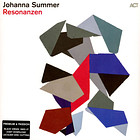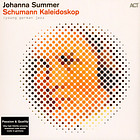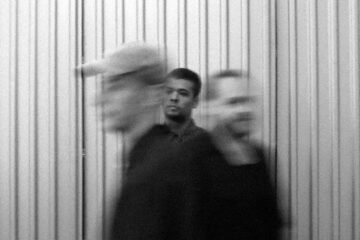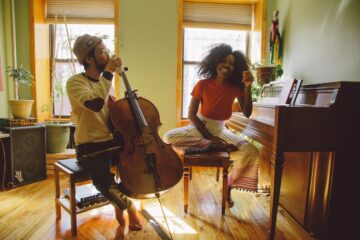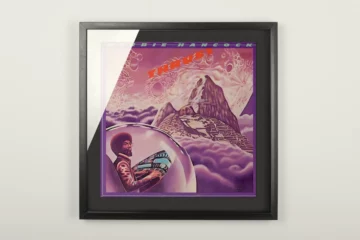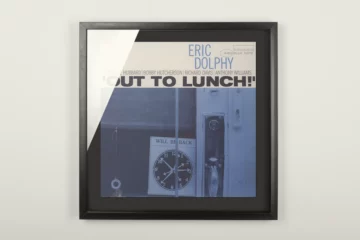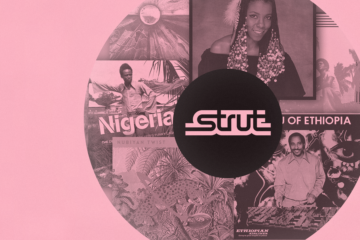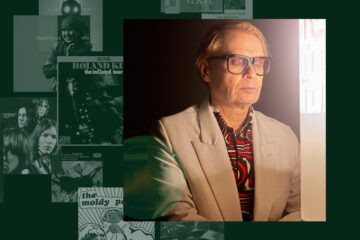»This may sound very general,« says Johanna Summer, »but I’m really driven by the search for my own sound«. Summer chose the piano for this exploration, in fact shortly after she was born. She was born in Plauen, Saxony, in 1995, and was sitting regularly at the keyboard by the time she was seven. She survives the school recitals as a »lazy learner«, as Summer puts it, and wins youth competitions at conservatories. She founds bands that no longer sound like their classical origins—»even if I didn’t know it at the time, but the openness in jazz immediately appealed to me«.
Summer studies in Dresden, discovers improvisation and plays her first concerts without a set list. Then she moves to Berlin to see how it could work »as a freelance musician«. Playing sessions every day and listening to gigs all the time, that’s only possible there anyway, says Summer. Dresden is a beautiful city, but unlike Berlin, it doesn’t have as many exciting jazz impulses.
At the Jazz Institute Berlin—»a rather run-down apartment building without any charm«—Summer regularly jams with colleagues. But she never felt a »university vibe« there anyway. Instead, she roams around Berlin, taking everything in: four or five gigs a week—»also because I knew that I didn’t want to stay here forever. The city is exhausting in the long run, it wears you down. That’s why Berlin was just a stop on my self-study tour.«
Educationally Cerebral
In 2018, Summer competes for the »Jungen Münchner Jazzpreis«, Munich’s rising star in jazz award. Michael Gottfried, A&R at the important jazz label ACT, is in the audience. Later, Summer’s contact gets in touch with the boss, Siggi Loch, who wants to meet her. »So I recorded some pieces by Robert Schumann, being still very much stuck in an educational mindset at that time, and played them for him—I don’t think he was very impressed.«
In a small apartment in Berlin, Summer refines her concept. She no longer records classical music, but improvises over classical piano pieces. Suddenly, Schumann jumps a century and a half and reaches the present through Summer. She played the result again for Siggi Loch. This time ACT signs Summer and releases her début »Schumann Kaleidoscope« in 2020.
»Then things get wild«.
Johanna Summer
The world stops. Lockdown, no concerts. What follows is a quiet farewell to Berlin and a master’s degree in Cologne, the second most important jazz city in Germany. It was a new »vibe«, says Summer. »The jazz scene there is much smaller, but also much closer. We were like a family—everyone knew everyone, everyone had already played together. That was just my thing.«
After the success of her first album—Summer is nominated for the German Jazz Award—she continues to tinker with »Resonances«. She improvises with Beethoven and Tchaikovsky, Bach and Scriabin—»in her own sound«, as Igor Levit would later say. But in the beginning everything was quite different. Summer records in Ölbergkirche church in Kreuzberg. ACT books three days for her. »But I never got into it,« says Summer. »When I heard the recordings, I knew immediately: I had to do it again.«
All roads lead to the Rome (eventually)
ACT didn’t think the second attempt was »so great«, but they agreed that Summer should record again—this time in front of an audience. »Suddenly I could play the way the music was meant to be played. Because I was playing to people and not to an empty room. And because I couldn’t just stop.« The recording goes down well with ACT, gets rave reviews, but most importantly: Summer is happy. After all, she knows what her music should sound like once she knows how to get closer to the piece.
»For me, it’s about entering a state of consciousness where I can let the source of my music flow. Then things get wild,« says Summer. »Because suddenly music comes out of the piano that I didn’t know I had inside me.« Reaching that state is great art—the good ideas come naturally. But you have to take the detours. They’re part of the journey.


